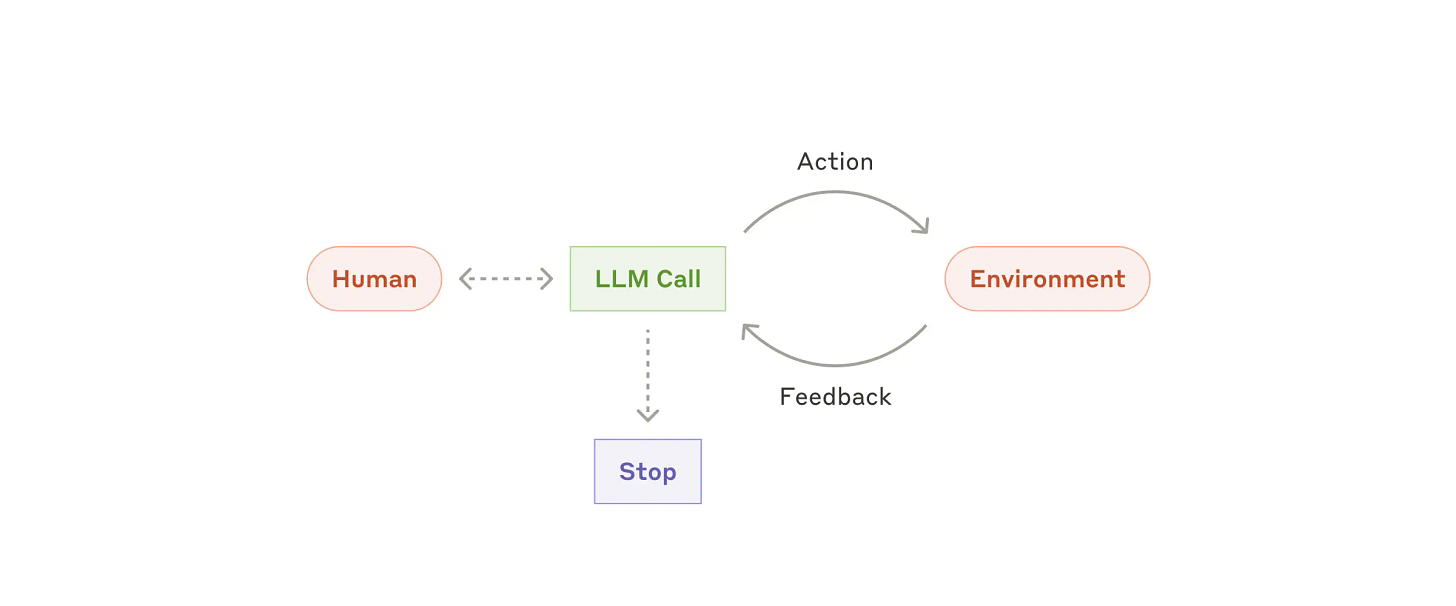Agent Management: The Next Evolution of Work
How AI Agents are Transforming Us from Doers to Orchestrators, and What Business Owners Need to Know About Managing These Digital Teammates—In a 3-Minute Read
Learn with AI:
The Gist:
As Enterprise buyers pour $4.6 billion into generative AI applications, we're entering a time period where AI agents will become collaborative partners in our daily work. Rather than replacing humans entirely, this transition will transform many of us into agent managers - orchestrating a team of agents that can independently execute complex tasks while working alongside humans.
What Needs to be Understood:
Environment: The space which an agent operate, whether physical (robots, drones) or digital (trading algorithms, game AI).
Policy: Internal rules and learned behaviors that guide the agent’s decisions.
Reward: Feedback (positive or negative) received by the agent, which informs its future actions.
Autonomy: An agent’s ability to operate independently using sensors and actuators.
Perception: An agent’s ability to gather data from their environments.
Historical Foundation: The journey toward agentic AI began with Norbert Wiener's cybernetics work in the 1940s, introducing self-regulating systems that could evolve through environmental interaction. This laid the groundwork for modern open-ended AI systems.
Open-endedness in AI: Agents possess the ability to continually generate new and unpredictable behaviors, solutions, or outcomes without predefined limits. Unlike LLMs that operate like vending machines, agents work more like personal chefs - planning ahead, maintaining context, and adapting to changing conditions.
Agent Types:
Autonomous agents operate independently, continuously perceiving and acting on their environment.
Intelligent agents incorporate learning and adaptation to improve over time.
Rational agents optimize for best outcomes based on available information.
Observations:
Real-World Examples:
Agent Development Considerations:
Agent-computer interface: How should your agent communicate with computer systems? Consider whether your agent should use precise programming commands or more flexible text formats to interact with other software. This choice impacts both development complexity and system reliability.
Human-agent interface: What should users see while the agent works? Determine which information helps users understand and trust what the agent is doing, similar to how a progress bar shows you the status of a download.
LLM selection: Which AI model best follows instructions for your specific needs? Different models have varying abilities to understand and execute commands accurately, making this choice crucial for your agent's effectiveness.
Tool use: What tools does your agent need access to? Just as a mechanic needs specific tools to fix a car, your agent needs the right digital tools to complete its tasks effectively.
Environment understanding: Does your agent understand its working environment? Consider whether it needs to gather more information before taking action, similar to how a contractor surveys a site before beginning construction.
Error awareness: Can your agent recognize and fix its mistakes? This capability is crucial for reliability and trust, much like how we value employees who can identify and correct their own errors.
Planning: How does your agent approach planning? Evaluate whether it can break down complex tasks into manageable steps and create effective execution strategies.
Task breakdown: Can your agent break down complex tasks into clear, manageable steps? Just as an effective project manager knows how to divide big projects into achievable milestones, your agent needs to understand how to sequence work logically.
Exploration and search: Can your agent explore different approaches? Assess whether it can consider multiple solutions and choose the most effective one, rather than just taking the first available path.
Evaluation methods: How do you verify your agent is meeting its goals? Establish clear methods to measure whether the agent is delivering the intended results and value for your organization.
Something to Think About:
Task Delegation: Which tasks would you delegate to an agent with a 75% success rate? How does this vary for 5-minute, 1-hour, 1 day, or week-long tasks?
Market Impact: Are agents primarily augmenting existing technologies or creating entirely new market categories and revenue streams?
Open-Ended Potential: What becomes possible when agents are given truly open-ended tasks rather than narrowly defined objectives?
Anthropic’s Advice on Building Effective Agents:
https://www.anthropic.com/research/building-effective-agents
The Emerging Agent Enablement Stack:
https://www.daytona.io/dotfiles/building-better-ai-agents-the-ai-enablement-stack
Professor Graham Neubig’s NeurIPS Discussion:


